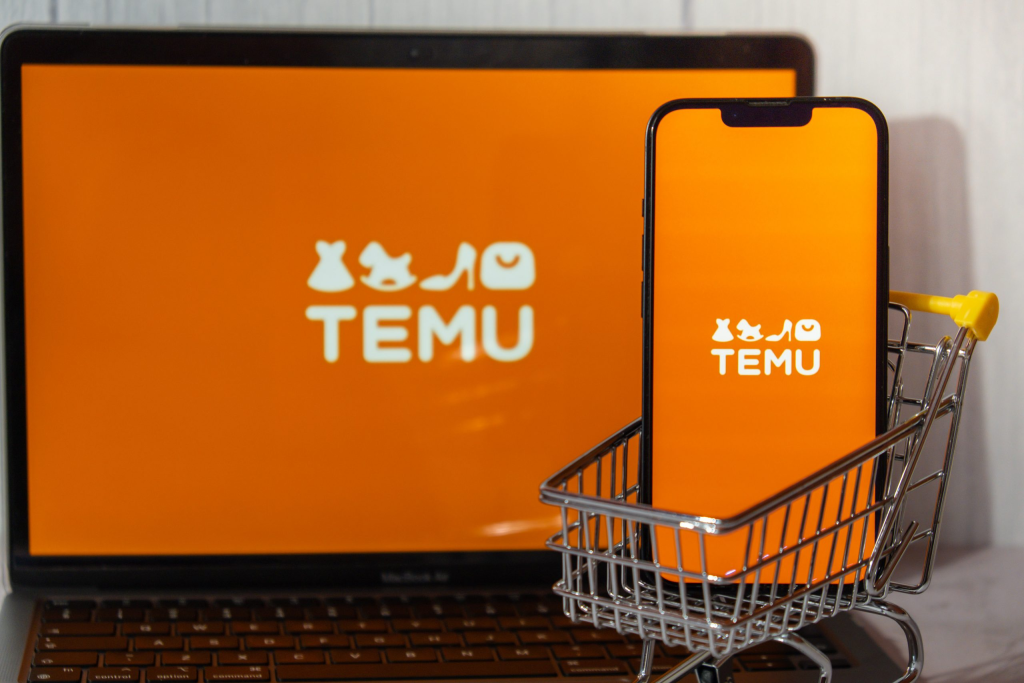In the digital landscape of the 21st century, China’s e-commerce platforms have emerged as formidable forces. Thus reshaping the global retail sector with their innovative strategies and aggressive expansion plans. Among them, Temu, a relatively new player but a rapid riser, has made waves across continents. Most recently capturing the spotlight with its bold move into Nigeria—Africa’s most populous nation and a land brimming with untapped e-commerce potential.

I. The French Success Story: A Precursor to Nigerian Adventure
Prior to its Nigerian debut, Temu had already etched its name in the e-commerce annals of France. It has also been skyrocketing to become the fourth most visited e-commerce site in the country. This meteoric rise, fueled by a combination of aggressive marketing, competitive pricing, and a vast selection of goods, set the stage for Temu’s ambitious African journey. By venturing into Nigeria, Temu isn’t just dipping its toes into a new market; it’s diving headfirst into a continent poised for e-commerce explosion.
II. Nigeria: The Sleeping Giant of E-commerce
Nigeria, with a population exceeding 200 million people and a rapidly growing middle class, presents an alluring opportunity for e-commerce players. Despite the challenges posed by infrastructural limitations and limited internet penetration (although improving), the nation’s youthful demographic. Over 60% of the population is under 25—and a burgeoning tech-savvy culture make it a fertile ground for digital commerce. Temu’s entry into Nigeria couldn’t have come at a better time, as the country’s e-commerce market is projected to reach $49 billion by 2025, according to industry reports.
III. Diversifying Choices: A Boon for Nigerian Consumers
Temu’s arrival promises a myriad of benefits for Nigerian consumers. Traditionally, local markets and physical stores have dominated retail in Nigeria. This will limit access to diverse and affordable products. Temu’s vast inventory, ranging from fashion and electronics to home decor and beauty products, offers a one-stop-shop experience that caters to the evolving tastes and preferences of Nigerian shoppers. Moreover, Temu’s reputation for offering high-quality goods at affordable prices aligns perfectly with the cost-conscious mindset of many Nigerians, making it an instant hit among budget-conscious consumers.

IV. A Catalyst for Local E-commerce Growth
Beyond consumer benefits, Temu’s entry serves as a catalyst for the growth of Nigeria’s e-commerce ecosystem. It brings competition to the market, forcing existing players to innovate, improve their offerings, and enhance customer service. This healthy competition is crucial for fostering a vibrant and resilient e-commerce industry. Additionally, Temu’s advanced logistics and supply chain management could inspire local businesses to adopt similar practices, thereby boosting overall efficiency and reducing costs.
V. Challenges and Opportunities in Parallel
However, Temu’s journey in Nigeria won’t be without hurdles. Infrastructure challenges, such as unreliable electricity supply and inefficient delivery networks. This will pose significant obstacles. Moreover, navigating Nigeria’s complex regulatory landscape and adapting to local consumer behaviors and preferences will require a nuanced approach. Despite these challenges, Temu’s experience in overcoming similar barriers in other markets suggests that it is well-equipped to tackle these issues head-on.
Temu’s strategy of leveraging social media and digital marketing to engage with customers also holds promise in Nigeria, where social platforms are integral to daily life. By harnessing the power of social influence and creating engaging content, Temu can effectively build brand loyalty and drive sales.
VI. A Bridge Between Continents
Temu’s foray into Nigeria is not just about business expansion; it’s about cultural exchange and economic empowerment. It serves as a bridge between China’s manufacturing prowess and Africa’s burgeoning consumer market, fostering trade relations and mutual understanding. As Temu continues to integrate into the Nigerian fabric, it has the potential to become a symbol of cross-continental collaboration and progress.

VII. The Dawn of a New Era
In summary, Temu’s decision to enter the Nigerian market marks the dawn of a new era for African e-commerce. It brings a wealth of opportunities for consumers, businesses, and the economy alike. While challenges are inevitable, Temu’s proven track record and adaptive strategies position it well to overcome these hurdles and emerge as a leading force in Nigeria’s digital retail landscape. As Temu navigates this exciting new frontier, it not only paves the way for its own success but also contributes to the broader transformation of Africa’s e-commerce industry.





